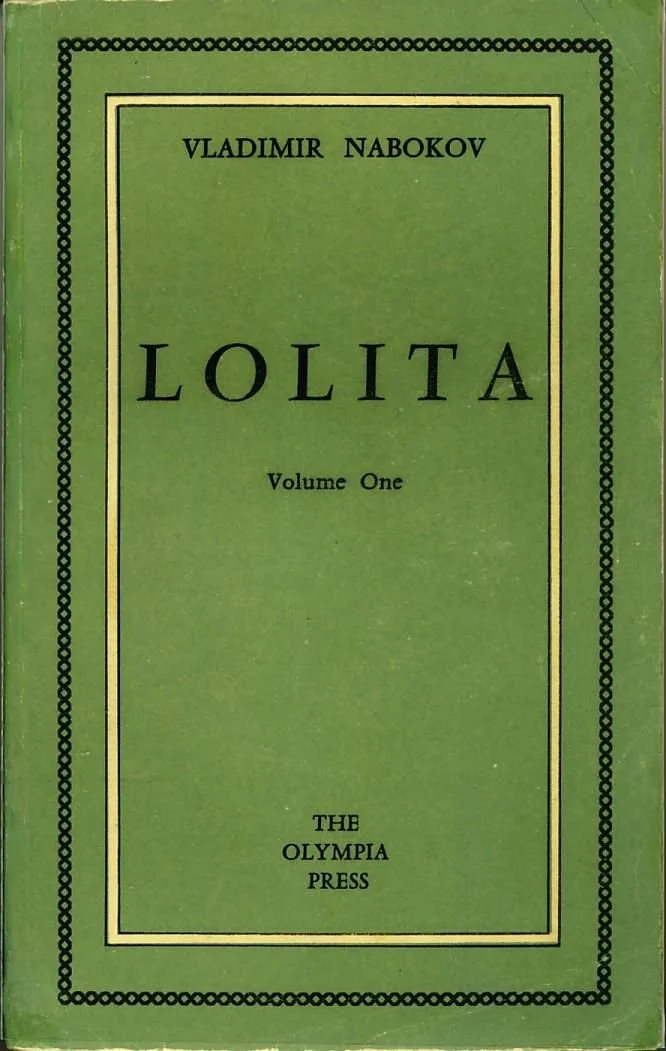Lolita: Book Review
Vladimir Nabokov’s Lolita came out in 1955. Its subject matter made publishers hesitant to put their name to it, and it was roundly rejected in the US and in Britain. It got its first glimpse of sunlight in France, and proliferated from there. It was widely acclaimed, and has made it into numerous ‘best book’ lists throughout the years. Even so, it was dangerous to those professionally involved. For example, Nigel Nicolson, a politician and the publisher who put the book out in Britain. Publishing the book drew the threat of prosecution under the Obscene Publications Act, and eventually contributed to ending his political career.
So these days, when the dust has settled from the book and the 1962 and 1997 films, does one still read it? Do you worry even more about what it says about you, that you seek it out so long after the international conversation around it has died? If you do read it, it’s probably a measured decision. Especially if you want to publicly discuss it.
For me, Lolita came up after I’d finished reading American Psycho and Blood Meridian. Those two books deconstruct the Wild West and the 80s from gilded memories of Americana, into hollow, violent, and utterly meaningless periods. Lolita had been coming up for me, since I wondered how its narrator would compare to that of Patrick Bateman. No one raises an eyebrow about the person reading American Psycho, but they do about about those reading Lolita. More on that a few paragraphs down. For now I’ll say, having read both, I can attest that both are unreliable narrators, and both are monsters. But where Bateman is nearly demonic in reveling in the pain he inflicts, Humbert is nearly as self-loathing as he is self-preserving. He hates his obsession with Lolita, even while he pursues it relentlessly.
I picked the book up, ready to put it into the did-not-finish pile at any point if it became indigestible. It begins poetically, beautifully, and all the more disturbing considering the object of the narrator’s affections. On the first page, the narrator, Humbert, is a sympathetic character - Witty, well read, with excellent faculty for prose. He’s also acutely ashamed of his perversion. He recognises it as vile, an evil impulse that he avoids indulging. He tries to mollify it in prostitutes and in conventional marriage. Of course his first marriage fails. The divorce is absurd, and frankly, hilarious. At times, it is difficult not to enjoy his witticisms and bizarre trains of thought. This is uncomfortable, since it shows that even monsters can have endearing qualities (which makes them all the more dangerous).
Part of the genius of the book is how it forces you to consider your stance on real-world evil. Do you separate your favourite musicians from their heinous behaviour (for example, Jimmy Page who imprisoned and raped a fourteen year old for two years, Anthony Kiedis who raped a 14-year old according to his autobiography)? Shouldn’t you disavow all their music? How much evil will you stomach from artists before you turn away. And how much more will you stomach from your friends and family?
The fact is that Lolita depicts something that really happens, including with those musicians I mentioned. Yet people readily forget about the real world culprits, but are made uncomfortable by Lolita, which is fiction. Some musicians even make music glorifying exactly the type of thought process that is clearly vilified in Lolita. I believe the only real difference here, is that the book forces you to actually look at those impulses. You cannot compartamentalise it or see it as anything other than abhorrent, and that’s where the discomfort lies.
Humbert himself becomes less sympathetic as you begin to understand the way he looks at children. Still, you can almost root for him as he struggles to overcome his impulses. You hope his better, gentler side wins out.
Of course, it doesn’t. And you soon lose all respect for him. He has his first sexual encounter with Dolores (Lolita) in a faux-innocent wrestling session. She doesn’t notice what’s happening under his clothes, and goes about her day. Humbert realises he got away with it. Rather than being disgusted with himself, he exults in getting away with it. From here he becomes, to me at least, utterly irredeemable. His last thread of humanity was his conscience and self loathing. But he instead plans how he will repeat the encounter which he believes preserves her innocence while indulging in his perversion. Of course it becomes worse throughout the book, thought thankfully never graphic.
Humbert becomes Lolita’s guardian, and takes her on a long roadtrip which takes up most of the book. He agonises over what he’s doing to her, but he won’t ever consider stopping. He alternates between justifying himself, hating himself, fearing what would happen if he were caught and so punishing the girl, and minimising his own actions through euphamistic explanations. In summary, he is a complex three-dimensional human, but also an irredeemable two-dimensional monster. And both those things being simultaneously true is what makes the book simultaneously uncomfortable and compelling. Every so often, he uses a euphamism that lets just enough of the truth slip that you realise anew how horrible he is. And yet at the end, after he finds her again in her adulthood, he makes sure that she is cared for financially, even in his absence. He writes the story as his memoir, and makes sure that it can only be published after Dolores’s death, so that his story might not impact her life.
In closing, one does not enjoy Lolita, one works through it, and contemplates it. You end up thinking back to the own (hopefully) lesser monsters in your childhood, and you see them in a new light. Not necessarily more sympathetic, but more real. And for that, this book gets five out of five stars.
